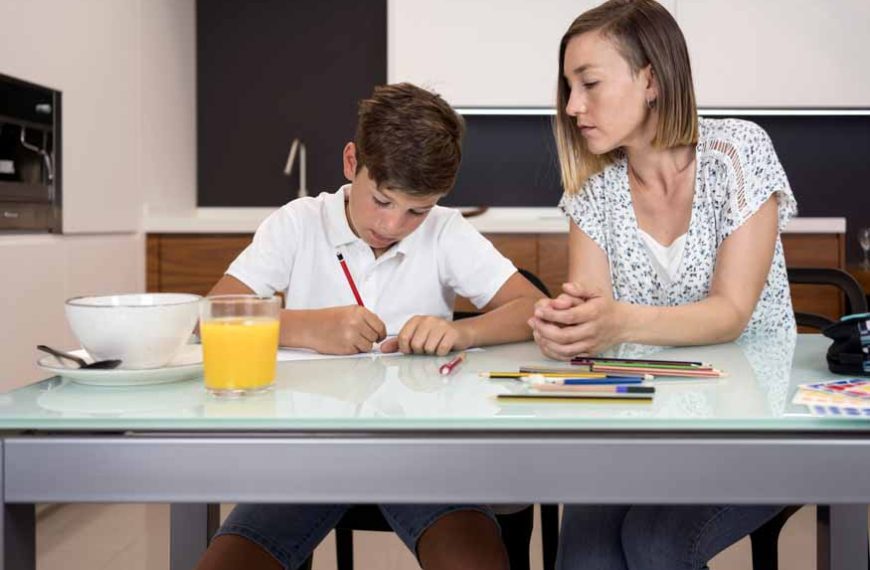Once reserved for a mere few children who didn’t fit into the framework of a traditional schooling setup, homeschooling has become an increasingly popular choice for many parents looking to impart the best education to their child. While those with a more conventional mindset might rubbish the very idea of being schooled at home, there are indeed certain benefits that homeschooling offers that traditional schools are not able to impart.
What is better, then? Classroom learning or homeschooling?
Before we take a look at each of these practices under a magnifying glass, let’s get a gist of what each of the schooling types really is, at the most basic level.
Traditional Schooling is a teacher-centred delivery of instruction to students, who are the receivers of information. It is generally expected here that children will gain mastery over academic learning in subjects like Math, Reading, Science and Social Studies. This is the model of learning that is generally adopted by public schools.
Homeschooling, on the other hand, is a system where the parents elect to keep their children at home to educate them. If they have been going to a traditional school prior to their being homeschooled, they are obligated to inform the school authorities about the decision to homeschool their children. If not, it’s perfectly legal to homeschool your children right from the beginning without having to inform anyone about it.
With a view to understanding the actual difference between homeschooling and traditional schooling, let’s explore the pros and cons of each. Let’s begin with Homeschooling.
Homeschooling is a progressive method that centres on delivering education to children within the home environment rather than sending them to a traditional school. Unlike the traditional educational framework, it emphasises cultivating familial bonds to facilitate education. It differs from traditional schooling in several respects, and it provides several advantages, such as emotional freedom, a customizable curriculum, strong bonds with teachers, and better academic achievements.”
– India Today
3 Key Benefits of Homeschooling
Let’s start with a look at the reasons that lie in favour of you homeschooling your children.
- They get Undivided Attention
- Flexible Curriculum
- Learning is for knowledge, not grades
Clearly one of the greatest advantages of homeschooling lies in the ability of parents to give their undivided attention to their children when teaching a particular subject, as opposed to a classroom where teachers find it difficult to address the individual learning problems of each child. Undivided attention is one of the important benefits of homeschooling vs traditional schooling.
Unlike traditional schooling, the curriculum for homeschoolers is most flexible. This curriculum can be thus tweaked according to the specific needs of the child in question.
Classroom learning is all about grades, right? Not so for homeschooling. The ultimate goal for kids schooled at home lies not in getting into those premier universities, but learning for the sake of knowledge itself. These are the three key benefits of homeschooling vs traditional schooling.
Did you know that traditional teaching can limit or enhance a child’s potential based on its learning patterns?
3 Pitfalls of Homeschooling
Here are some reasons homeschooling might not be the best fit for your child.
- A sense of Isolation
- Lack of adequate structure
- Being a full-time educator
An education at home might just end up socially isolating your children. Not having the sense of community that children in traditional classrooms are privileged to experience, homeschooled children sometimes turn out to be frustrated or depressed.
While a parent might indeed create some sort of structure when it comes to their kids’ education at home, it will in all probability not be easy and as well-defined as that in a traditional classroom. In the case of the latter, it encompasses tried and tested methodologies, credible sources and standardised assessments that homeschools clearly lack.
It’s a given that if you’re opting in for Education at home for your children, either you or your spouse is going to have to quit their day job to be a full-time educator. This can be very difficult, most of all financially. The last thing you want to do is compromise and try and squeeze in some learning for your child, when working a part-time job.
Did you know the benefits of homeschooling in India?
3 Pros of Traditional Schooling – Bell Rings, Book Swings!
Just like we did in the case of homeschooling, let’s look at the ‘good stuff’ first, where it comes to Classroom Learning.
- 1.Confidence through Social Interaction
- 2.Bonuses like Sports, Art and Music
- 3.Gives your child a sense of independence
One of the best things about Classroom Learning is the fact that it hones the social skills of children. In a classroom they get to interact with friends and form the very first relationships with people outside the inner circle of their family. Learning together, they garner that much-needed confidence to talk to people outside of school, too.
There are several other things that children can learn to excel in while going to a traditional school. There are sports activities and even elective options like Art and Music. These programs might not be available to children that are homeschooling.
In a traditional classroom, children get that vital sense of independence as they are away from you for many hours of the day. It’s almost as though they might be cutting an ‘umbilical cord of sorts’, and initiating the process of breaking free that culminates in them ‘leaving the nest’ several years later.
3 Cons of Traditional Schooling – Clock Ticks, Yawn Kicks!
You might wonder, are there really any cons where it comes to traditional schooling?
- Overdependence on Teachers
- Generalised learning
- No flexibility with Time
Children who find themselves in the traditional schooling process, often see themselves constantly looking to their teachers for guidance when it comes to things like notes and explanations of the topics they teach them.
Children in traditional classrooms find themselves studying extremely hard to learn most ‘generalised’ subjects that might actually end up making it difficult for them to learn about the things they are really interested in. Things that fall well outside the curriculum.
That sense of ‘structure’ you sought for your child’s education, was perhaps one of the major reasons you chose Traditional education. However, children can sometimes be overwhelmed by the rigid study hours in traditional classrooms, especially when they are given loads of homework to do afterwards.
It is our goal to provide the best possible traditional schooling experience for your child. That being said, we aim for an all-rounded development of your little one. We know you have the choice to choose any preschool out there, and will be highly indebted to you if you make the decision to enter the Eurokids family.
Conclusion
As parents, we know that you wish for the best education system for your children. There are two types of schooling currently being practised in India: homeschooling and traditional schooling. In this article, we have provided detailed information on homeschooling in India and hope to have answered the question, ‘What is traditional schooling?’ Although traditional teaching has its benefits, homeschooling in India is also supportive of your child’s learning experience.
Which of the education systems are you going to enrol your children in, homeschooling or traditional schooling?
For informative and accurate articles on all things related to your new born-toddler’s development, growth, health and nutrition, follow EuroKids Blogs and do check out our nationally recognized preschools – EuroKids for the first step in your kid’s educational journey!















